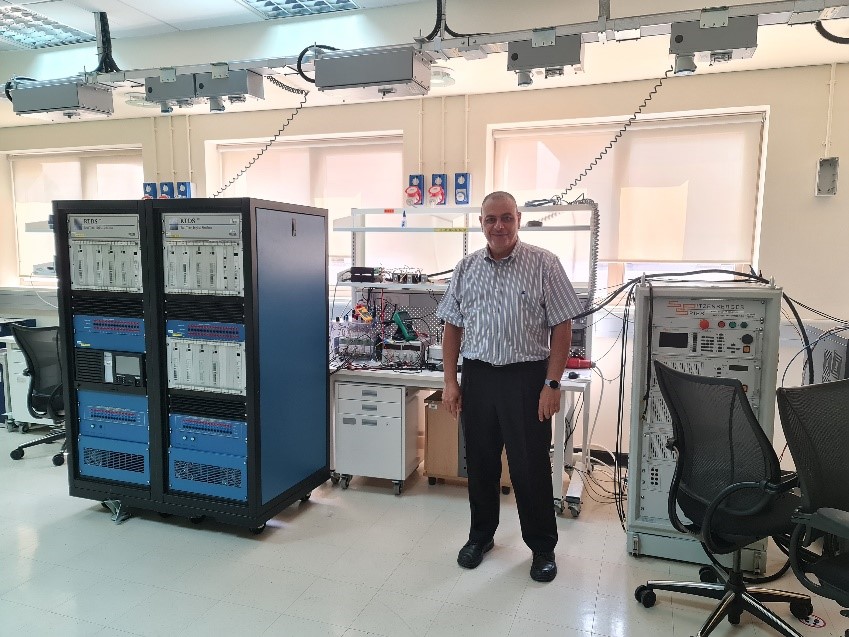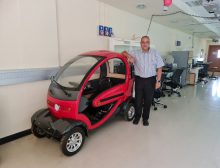
Dr. Ehab Fahmy El-Sadaany is director of the Advanced Power and Energy Center (APEC) at Khalifa University in Abu Dhabi, United Arab Emirates. A professor in the university’s Electrical Engineering and Computer Science Department, he focuses on the operation and control of energy distribution systems.
Previously, he was a professor in the Electrical and Computer Engineering Department at the University of Waterloo in Canada, and he was also the director of the university’s power Master of engineering program. Between 2009-2018, Ehab was a Canada Research Chair and was among the first researchers setting policy for integrating renewable energy into the country’s power system alongside Hydro One Networks, the largest utility company in the Canadian province of Ontario.
Dr. El-Sadaany earned his PhD from the University of Waterloo in 1998. He received his bachelor’s and master’s degrees from Ain Shams University in Cairo, Egypt, in 1986 and 1990.

Tell us more about your company/organization
Khalifa University is a research-intensive school with several crucial mandates. One of the most important is the integration of renewable energy into the power supply. Khalifa University has closely examined the UAE’s energy portfolio to identify how to diversify its energy resources, which can help make the country’s energy system more reliable and secure.
Khalifa University built a major research center – the Advanced Power and Energy Center – to look at all aspects of integrating renewable energy resources. Equipped with state-of-the-art laboratories and boasting top researchers, APEC focuses on diversifying energy resources while maintaining grid resiliency, security, efficiency and reliability.
Specifically, the center focuses on four key research fields which can help improve electric power systems while also allowing for seamless and economical operation of high-capacity renewable energy resources like solar PV, concentrated solar and nuclear, along with energy storage systems. The four research areas are:
- Renewable integration and storage systems: Enhancing the renewable energy system’s characteristics by looking at suitable ways to develop 100-percent renewable systems with augmented storage devices.
- Advanced power electronics: Developing modern power electronics-based solutions for different applications with emphasis on renewable interfacing and fast charges for EVs.
- Smart transmission and distribution systems: Eliminating negative impacts that renewable integration may have on power systems along with supporting hybrid AC/DC grids, and providing optimal architecture for smart-grid and transportation electrification.
- Transportation electrification: Creating optimal designs for EV drive trains and wireless charging mechanisms.
How do you intend to leverage being an MI Champion?
A top priority is raising public awareness about the benefits of increasing the penetration of renewable resources and addressing any negative opinions or fears that may cause. As a Mission Innovation Champion, I have had the opportunity to reach out to policymakers at the Ministry of Energy and to executives at major utilities like transmission and distribution companies. This outreach helps facilitate increased renewable penetration and helps overcome technical barriers that may hinder such development.
Do you have any upcoming plans or announcements that you would like to share with the MI community?
Khalifa University and APEC successfully won a bid to host one of the flagship conferences of the Institute of Electrical and Electronic Engineers – the Innovative Smart Grid Technologies conference, which will be held in early 2023. It will mark the first time this conference will be held in the Middle East. The conference will focus on all aspects of renewable integration and its effect on smart power systems.